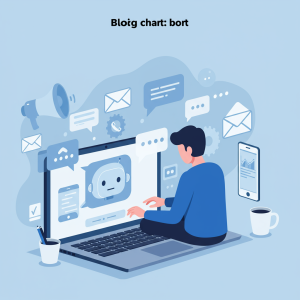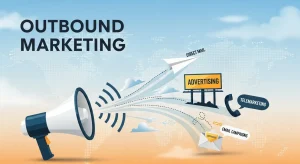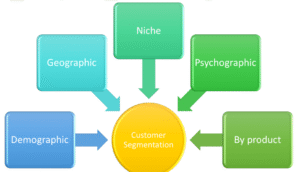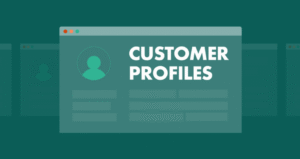
Outbound marketing represents a proactive approach where businesses initiate conversations with potential customers through various channels. Within Microsoft Dynamics 365, this strategy transforms into a sophisticated system that enables organizations to reach prospects systematically and measure results effectively.
Unlike inbound marketing that waits for customers to find you, outbound marketing in Dynamics 365 puts your brand directly in front of your target audience. The platform provides comprehensive tools to execute campaigns across multiple touchpoints while maintaining detailed tracking and analytics.
Understanding Dynamics 365 Marketing Capabilities
Dynamics 365 Marketing serves as a comprehensive solution for businesses looking to implement outbound strategies. The platform integrates seamlessly with existing customer data, allowing marketers to create personalized campaigns based on detailed customer profiles and behavioral insights.
The system’s strength lies in its ability to automate complex marketing workflows while maintaining personal touches. Marketers can design intricate customer journeys that respond to individual actions and preferences, ensuring each prospect receives relevant communications at optimal times.
Campaign management becomes significantly more efficient through Dynamics 365’s unified interface. Teams can coordinate across email, social media, events, and traditional advertising channels from a single platform, eliminating the need for multiple disconnected tools.
Core Outbound Marketing Features in Dynamics 365
The email marketing functionality within Dynamics 365 goes beyond simple broadcast capabilities. Advanced segmentation tools allow marketers to divide audiences based on demographics, purchase history, engagement levels, and custom criteria. This precision targeting ensures messages reach the most receptive audiences.
Lead scoring automation helps prioritize prospects based on their likelihood to convert. The system assigns points for various actions like email opens, website visits, and content downloads, enabling sales teams to focus on the most qualified leads.
Event management tools facilitate both virtual and in-person marketing events. From registration workflows to post-event follow-up sequences, Dynamics 365 streamlines the entire event marketing process while capturing valuable attendee data.
Social media integration enables direct posting and monitoring across major platforms. Marketers can schedule content, track engagement metrics, and identify potential leads from social interactions, all within the Dynamics 365 environment.
Building Effective Customer Journeys
Customer journey mapping in Dynamics 365 allows marketers to visualize and automate complex communication sequences. These journeys can span weeks or months, nurturing prospects through carefully timed touchpoints that guide them toward purchasing decisions.
Trigger-based automation ensures prospects receive relevant messages based on their specific actions. When someone downloads a whitepaper, visits a pricing page, or abandons a shopping cart, the system can automatically initiate appropriate follow-up sequences.
Personalization capabilities extend beyond simple name insertion. Dynamic content blocks adjust messaging based on industry, company size, previous purchases, or engagement history, creating truly individualized experiences for each prospect.
A/B testing functionality helps optimize every element of outbound campaigns. Marketers can test subject lines, send times, content variations, and call-to-action buttons to continuously improve performance metrics.
Integrating Sales and Marketing Efforts
The seamless connection between Dynamics 365 Marketing and Sales creates powerful synergies for outbound efforts. Marketing qualified leads transfer automatically to sales teams with complete context about previous interactions and engagement history.
Sales professionals gain access to comprehensive prospect profiles that include marketing touchpoints, content preferences, and behavioral data. This information enables more informed conversations and higher conversion rates during outbound sales calls.
Lead nurturing continues even after sales handoff, with marketing automation supporting sales efforts through targeted content delivery and engagement tracking. This collaborative approach ensures no opportunities fall through communication gaps.
Measuring Outbound Marketing Success
Analytics and reporting capabilities in Dynamics 365 provide detailed insights into campaign performance across all channels. Marketers can track everything from email open rates to event attendance, website conversions, and revenue attribution.
Real-time dashboards display key performance indicators, allowing teams to make immediate adjustments to underperforming campaigns. Custom reports can be created to focus on specific metrics that matter most to individual business objectives.
ROI tracking connects marketing activities directly to revenue outcomes. By following prospects through the entire customer journey, organizations can identify which outbound tactics generate the highest returns and allocate resources accordingly.
Implementation Best Practices
Successful outbound marketing in Dynamics 365 begins with clean, well-organized data. Investing time in proper contact management and segmentation strategies pays dividends in campaign effectiveness and deliverability rates.
Regular testing and optimization should be built into every campaign strategy. Small improvements in email subject lines, landing page designs, or call-to-action placement can significantly impact overall results over time.
Compliance with data protection regulations remains crucial for outbound marketing success. Dynamics 365 includes tools to manage consent preferences and ensure communications meet legal requirements across different jurisdictions.
Training team members on platform capabilities ensures organizations maximize their investment. Regular skill development helps marketers leverage advanced features and stay current with new functionality as Microsoft continues platform development.
Advanced Automation Strategies
Multi-channel orchestration allows sophisticated marketers to coordinate messages across email, phone, direct mail, and digital advertising. Dynamics 365 can trigger actions in external systems, creating comprehensive outbound campaigns that feel seamless to recipients.
Predictive analytics capabilities help identify prospects most likely to respond to specific outbound approaches. Machine learning algorithms analyze historical data to recommend optimal timing, channels, and messaging for individual contacts.
Custom workflows can be designed to handle unique business processes and industry-specific requirements. The platform’s flexibility accommodates complex approval processes, regulatory requirements, and specialized communication needs.
For comprehensive outbound marketing strategies and expert implementation guidance, visit outboundmarketo to explore how professional services can accelerate your Dynamics 365 success.
Outbound marketing in Dynamics 365 represents a powerful combination of traditional marketing principles with modern technology capabilities. Organizations that master this integration gain significant competitive advantages through more effective prospect engagement, improved sales alignment, and measurable revenue growth.





